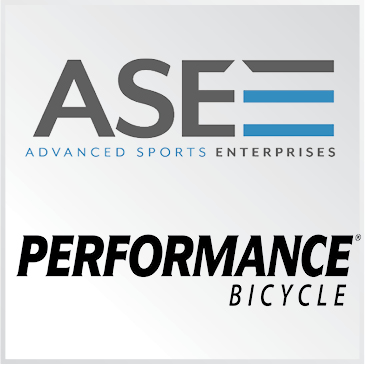Advisory Services
Your partners in making data analysis actionable

Tiger Advisory Services is an in-house consultancy practice built upon Tiger’s multi-disciplinary strengths to help commercial enterprises solve any array of business challenges stemming from financial distress.
Our experts work closely with partners in identifying existing value, creating a restructuring vision for future growth, and executing this vision through the support of comprehensive analytics, working capital and operational talent.
Tiger has the capacity to conduct full equity purchases of distressed entities with the aim of right-sizing balance sheets while retaining and prioritizing the core value of the company – whether that be inventory, hired talent, intellectual property, real estate, and/or other assets. Our deep network of industry players find potential buyers for enterprises
that may benefit from continued growth by tapping into larger selling channels.
Combining Tiger’s decades of financial knowledge and experience, key industry relationships, deep lending facilities and custom-designed analytical tools, Tiger Advisory Services is uniquely positioned to provide businesses with the most comprehensive plan of action for swift balance sheet recovery and recommend optimal operational strategies throughout the process.
Advisory Services Leadership






Philadelphia-based Advanced Sports, Inc. (ASI) had built a successful business by selling storied cycling brands Fuji, Kestrel, SE and Joe Breezer to more than 750 independent dealers across its wholesale network. But the company strayed from its core product categories and wholesale business. In addition to expanding into retail stores, ASI purchased an excessive amount of inventory, much of which did not align with the Company’s core competencies. The company closed its retail stores and filed for bankruptcy.
Tiger saw a viable going-concern business with strong brand equity and distribution infrastructure. In February 2019, a bankruptcy court approved Tiger’s $23 million, going-concern bid, submitted in a joint venture with a Taiwan-based manufacturer and a third-party real estate entity.
Recognizing that ASI carried tried-and-true product lines, interim CEO Ryan Davis, Tiger Group Executive Managing Director, moved to pare back the inventory overgrowth and refocus ASI on its core categories, SKUs and wholesale business. As Davis observed at the time, dedicated cyclists choose dealers first and they tend to prefer independents over corporate chains. He also directed his teams to reach out to the dealer network, listen to their concerns, and make sure ASI was providing the highest level of service possible. In a critical component of the turnaround, the independent dealer network was preserved.
In October 2019, Tiger sold its stake in the LLC to the Taiwan-based JV partner, preserving 43 jobs. Just a few months later, the pandemic triggered a sharp increase in global demand for bicycles. With its restored balance sheet and revitalized inventory, ASI was was ready to capitalize on the opportunity, and it continues to serve its customers today.
California-based Richer Poorer enjoyed excellent customer rapport, with celebrities such as Jessica Alba and Miley Cyrus wearing its sweats, tees, intimates, dresses and loungewear. CEO and Co-Founder Iva Pawling, herself a talented leader, had surrounded herself with gifted contributors.
But the e-tailer ran into trouble owing to several challenges, chiefly:
- the collapse of the pandemic-era spike in loungewear purchases, leaving Richer Poorer over-inventoried in 2022;
- the soaring operating costs at this time—a major hurdle for smaller ecommerce players; and
- reliance on an inordinately expensive warehouse in Southern California.
“People are our strongest asset” is a business cliché, but Tiger Advisory Services takes personnel quite seriously in assessing turnaround candidates. While Richer Poorer employed only about 20 people, Tiger recognized not only the strength of the brand, but also the talents of Pawling and her heads of wholesale sales and merchandise planning, among others.
After making an equity investment in Richer Poorer, Tiger focused on restoring the balance sheet and cleansing the inventory. The goal was to sell the business to a larger platform that could provide operating efficiencies in marketing, distribution and other areas. Tiger replenished core SKUs and used its expertise in online liquidations to shed about two-thirds of the existing inventory. In marketing Richer Poorer, Tiger emphasized the value of Pawling’s leadership team.
Multiple would-be buyers stepped forward to bid. The winner, in May 2023, was francesca’s Acquisition LLC, which operates francesca’s and franki by francesca’s boutiques. Richer Poorer continues to grow as part of the francesca’s family.


In 2021, ModCloth experienced financial distress. Why did Modcloth stumble? While its hip, vintage-inspired apparel and accessories appealed to a niche audience, Modcloth’s business plan was oriented around scaling up to become a mass-market e-tailer. Walmart had owned Modcloth until 2020 and had spent hundreds of millions of dollars to build a strong customer base as a foundation for profitability. In fact, Tiger’s analytics showed that more than 50 percent of sales were from customers who had been buying from the women’s fashion brand since 2015—an almost unheard-of achievement in customer loyalty.
In assessing this brand, Tiger Advisory Services observed that its current operator needed to pivot away from spending heavily on customer acquisition at the expense of customer retention. At this developmental stage, Tiger believed, the right move was to sharpen Modcloth’s focus on providing excellent service and product to the existing customer base. Tiger’s investment thesis was simple: Accept that this is a smaller, niche business, and it will turn a profit.
Tiger Advisory Services refocused Modcloth’s business plan, with an emphasis on delighting core customers. In May 2021, Tiger helped finance the acquisition of ModCloth by Nogin, a market leader in outsourced e-commerce for major fashion and consumer product companies. The arrangement enabled this smaller e-commerce player to benefit from the economies of scale provided by a larger, more sophisticated platform.
